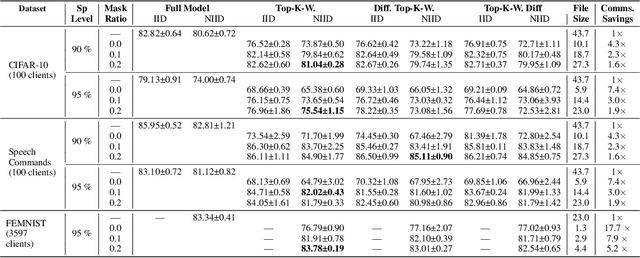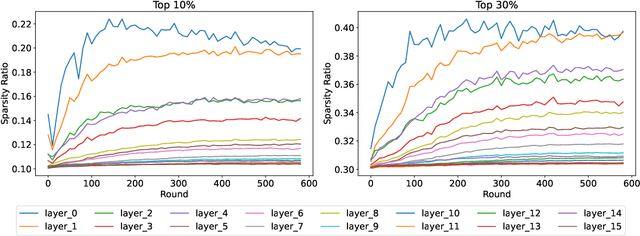ZeroFL: Efficient On-Device Training for Federated Learning with Local Sparsity
Paper and Code
Aug 04, 2022



When the available hardware cannot meet the memory and compute requirements to efficiently train high performing machine learning models, a compromise in either the training quality or the model complexity is needed. In Federated Learning (FL), nodes are orders of magnitude more constrained than traditional server-grade hardware and are often battery powered, severely limiting the sophistication of models that can be trained under this paradigm. While most research has focused on designing better aggregation strategies to improve convergence rates and in alleviating the communication costs of FL, fewer efforts have been devoted to accelerating on-device training. Such stage, which repeats hundreds of times (i.e. every round) and can involve thousands of devices, accounts for the majority of the time required to train federated models and, the totality of the energy consumption at the client side. In this work, we present the first study on the unique aspects that arise when introducing sparsity at training time in FL workloads. We then propose ZeroFL, a framework that relies on highly sparse operations to accelerate on-device training. Models trained with ZeroFL and 95% sparsity achieve up to 2.3% higher accuracy compared to competitive baselines obtained from adapting a state-of-the-art sparse training framework to the FL setting.
 Add to Chrome
Add to Chrome Add to Firefox
Add to Firefox Add to Edge
Add to Edge